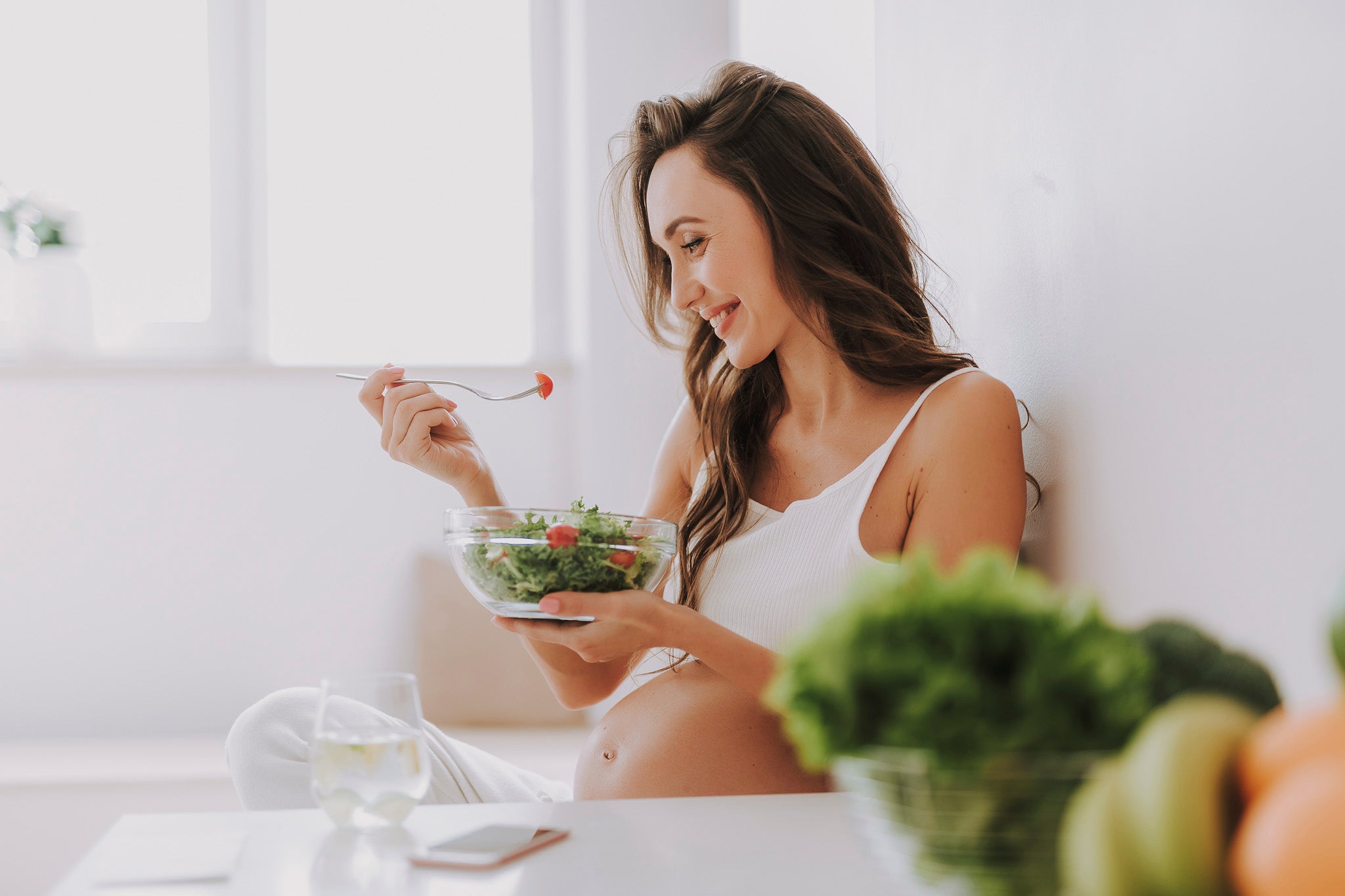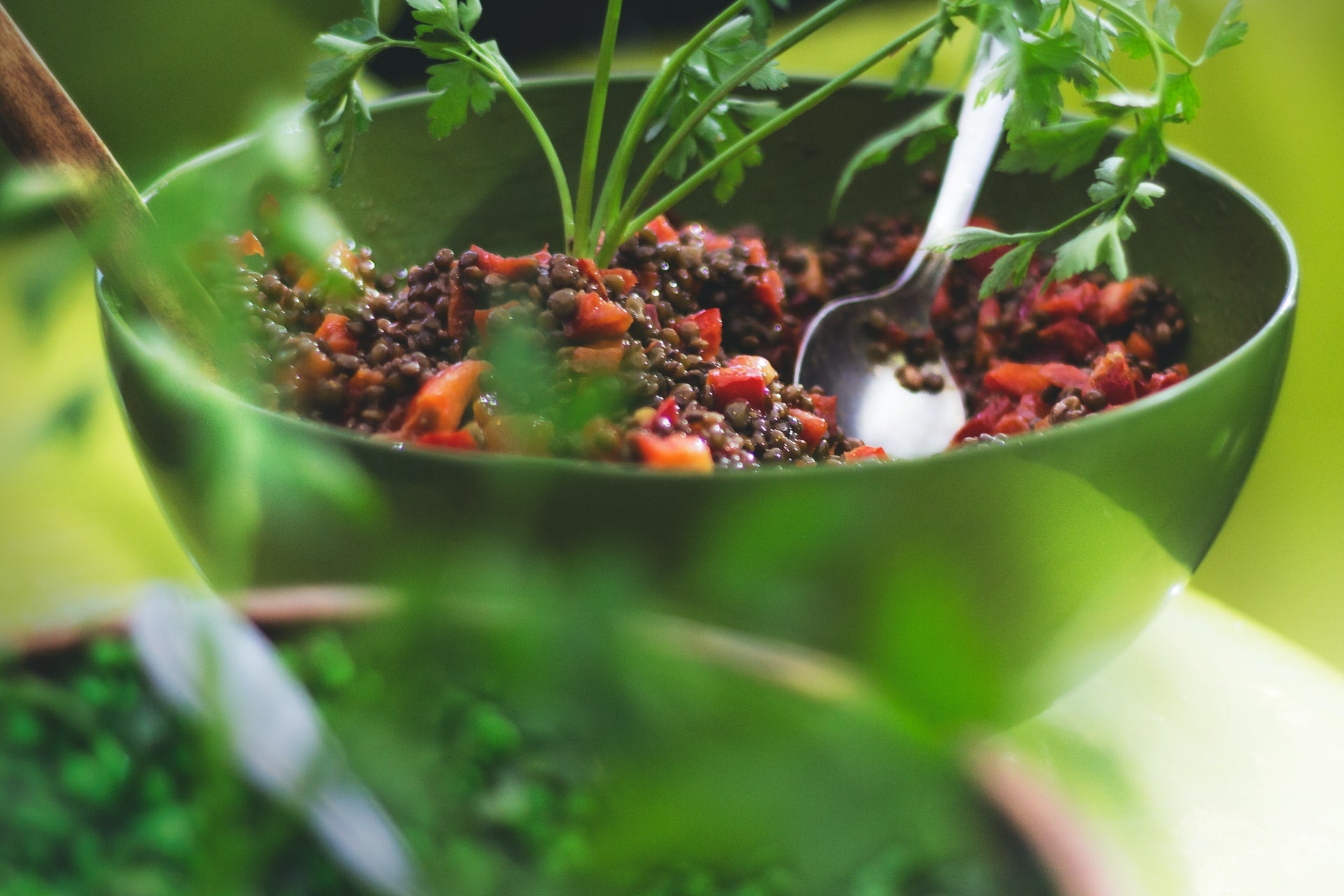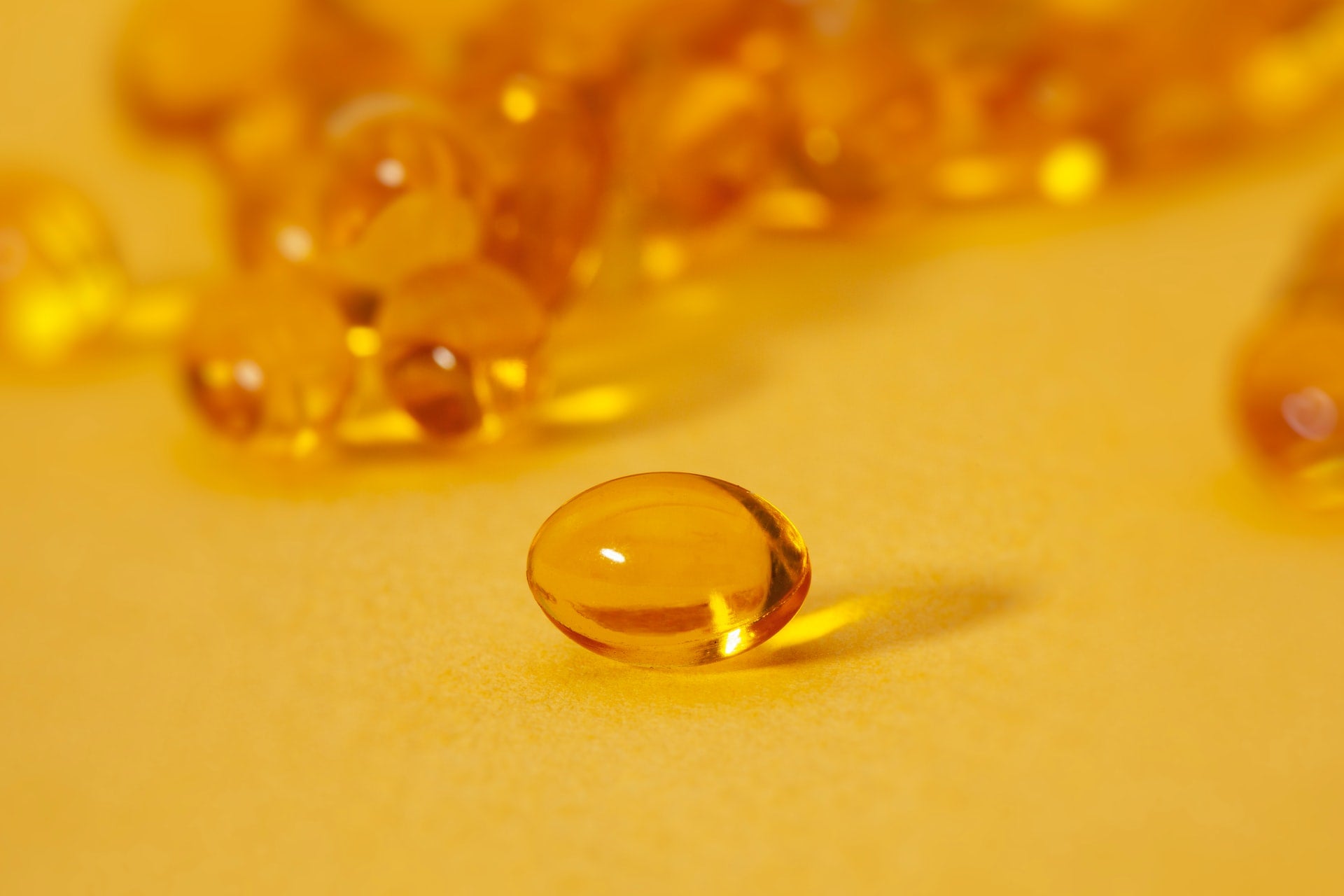10 top tips for nutrition during pregnancy

The things that you eat and drink during pregnancy are your baby’s main sources of nourishment for their growth and development, so it’s important to make smart choices. It’s also important for you to get the nutrition needed in order to keep you fit and healthy throughout the 9 months, as we all know pregnancy is tiring and takes a toll on your body.
Being concerned about what you eat during pregnancy is perfectly natural, there are so many rules and myths surrounding your diet, but don’t worry - it’s easier than you think once you know which foods to prioritise. Nutritional therapist Jodie Abrahams gives us her 10 top tips for what to eat and drink to help you feel your best during pregnancy and to help your little one get the best start possible.
1. Stay hydrated
During pregnancy, the placenta, amniotic fluid and increased maternal blood volume all require plenty of water. Keeping well-hydrated will also help to maintain your energy levels, ease water retention and can even reduce nausea. So, drinking your 2 litres a day will help your body to meet its increased demands and may even stave off the dreaded swollen ankles.
Ensure that you’re sipping water regularly throughout the day - I often suggest carrying a bottle with you and keeping a glass of water within reach at work or home.
Staying hydrated can also help to prevent constipation, which leads us neatly into point
2. Fill up on fibre
Pregnancy is a miraculous time - your body is growing another human being from scratch! Unfortunately, it can also be a time of less awe-inspiring maladies such as constipation.
The surge in the hormone progesterone during pregnancy can slow down the movement of food through the colon, leaving you feeling blocked up, heavy & sluggish. Staying well-hydrated and eating a diet rich in fibre can help to alleviate this.
Make sure to include plenty of fluids in your diet, plus a range of fresh fruit and vegetables whole grains, legumes, nuts and seeds. Oats are also a gentle source of soluble fibre that can help to get things moving, making them ideal for breakfast.

3. Don’t fear fats
Fat is essential for supporting your baby’s brain, eye and nervous system development. Focus on increasing your intake of good quality plant-based fats from olive oil, coconut oil, avocados, walnuts, almonds and pumpkin seeds.
If you eat dairy, avoid choosing fat-free products and instead opt for pasteurised organic milk, yoghurt and cheese. (Remember that some cheese isn’t safe to eat during pregnancy)
Eating oily fish like salmon, trout, mackerel, herring or sardines up to twice a week also provides essential omega 3 fats. (Again check NHS Choices for their recommendations on what to avoid during pregnancy)
4. Protein for building
Protein is the building block for cells, tissues, muscles and organs, so it makes sense that you’ll need more in your diet when you’re growing a baby.
Meat, fish and eggs are great sources of complete protein, but there are lots of plant-based protein-rich foods you can include in your daily diet too. These add variety to your diet and have the benefits of other vitamins and minerals too. Try legumes like chickpeas, lentils and peas, plus nuts and seeds. Quinoa and buckwheat are great as sides or in salads as they contain all the essential amino acids our bodies need to build proteins.

5. More blood = more iron
Anaemia is common during pregnancy as a woman’s blood volume increases by up to 50% by week 36 of pregnancy. Therefore it’s important to eat iron-rich foods to meet the increased demands and avoid an iron deficiency.
Including red meat, poultry and seafood in your diet are an easy way to boost your iron intake. Plant-based sources include dark leafy vegetables such as spinach, chard, kale and beet greens. Lentils, chickpeas and kidney beans also contain iron, as do dried apricots, pumpkin seeds, sesame seeds and cashews.
6. Eat the rainbow
This might be easier said than done when you’re in the throes of first-trimester queasiness and only want beige foods. But, colourful fruit and veg contain a range of nutrients that are particularly important when you’re growing a baby, such as Vitamin C, folate and beta carotenes.
There are plenty of easy switches you can make so meals are more colourful and nutrient-dense, they just require a little forethought. For example:
- Add berries, spinach or other sources to a banana and oat smoothie for breakfast
- Switch your usual potatoes to sweet potatoes
- Make a kale and almond pest to go with pasta for dinner

7. Ditch the stimulants
Caffeine and sugar have a stimulating effect on the nervous system, which can throw your energy levels, mood and concentration completely off balance.
During pregnancy, it’s important to decrease your caffeine intake as it can affect your baby (it’s recommended to drink no more than 200mg a day). Caffeine also raises your heart rate and blood pressure and can act as a diuretic, which can make you more dehydrated too.
Keeping your blood sugar stable is vital for maintaining balanced energy levels throughout the day. A steady blood sugar level can also help to reduce nausea and hormonal mood swings.
Focus on reducing refined carbohydrates and simple sugars, such as white bread, white pasta, pastries, cakes, chocolate and biscuits as these will all cause your blood sugar levels to spike. Instead, opt for whole grains like brown rice, whole grain brown and pasta, quinoa and oats, which have a slower release of energy.
8. Listen to your body
Our bodies are pretty clever at telling us what they need. Fancy a steak? Maybe you need to boost your iron levels. Craving greens? It could be Vitamin C.
Try to focus on how you’re feeling when you crave certain foods. If you want to eat a whole packet of biscuits, it could be because you’re body needs sugar. Or maybe you’re actually tired and looking for a quick energy fix. Try having nut butter on an oatcake or a healthy energy ball and an early night instead. While it might be tricky to avoid the treat in the moment, use the thought of how much better you’ll feel for it afterwards as a motivator.

9. Focus on eating real food
Cooking with whole foods is the best way to ensure you’re getting a broad range of nutrients in your diet without any suspicious additives or nutrient losses from processing.
Processed foods often contain additional salt, sugar, preservatives, flavourings and fats that don’t have any nutritional benefits. Take the guesswork out of what you’re eating and try and prepare as much as you can at home, using ingredients you recognise.
If you’re short on time, stock your freezer with frozen or pre-chopped fruit and veg and pre-cooked grains and keep eggs in the house so you’ve got ingredients to throw together a quick and nutritious meal. I also recommend batch cooking and freezing the excess, so you have this to fall back on when you’re too tired to cook.
10. Supplement wisely
Whilst supplements should never replace a balanced diet, taking a good quality pregnancy multivitamin and mineral acts as an insurance policy. It ensures you’re getting the right levels of the nutrients you require every day.
Many prenatal supplements are suitable to continue throughout pregnancy and into breastfeeding, meaning you can keep it simple. Always talk to a medical professional before taking anything though to ensure the safety of you and your little one.

Jodie Abrahams grew up in a health-conscious family and from an early age understood that some foods were better for you than others. However, she didn’t begin her nutritionist career until her early twenties after she worked with a nutritional therapist for her own dietary needs. Jodie now specialises in women’s health, understanding the ways in which diet has an impact on hormones, moods, energy levels and cycles.
Preparing for the arrival of a newborn? Discover our Starter Set and save 40% off a beautifully curated collection of up to 12 essentials crafted in our softest organic fabrics.



 100s of gift ideas
100s of gift ideas












